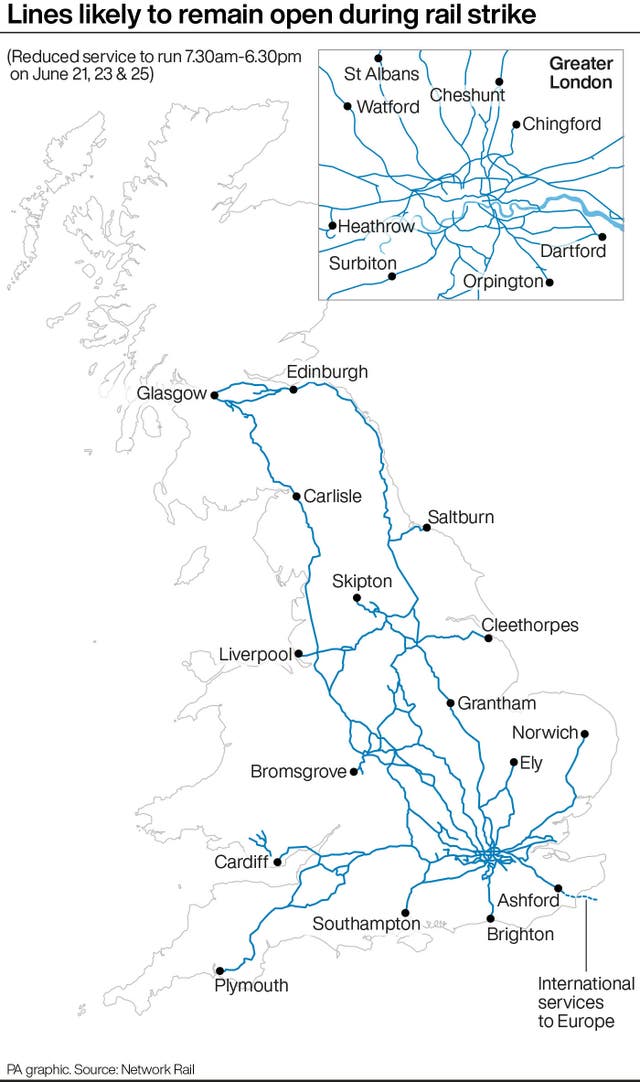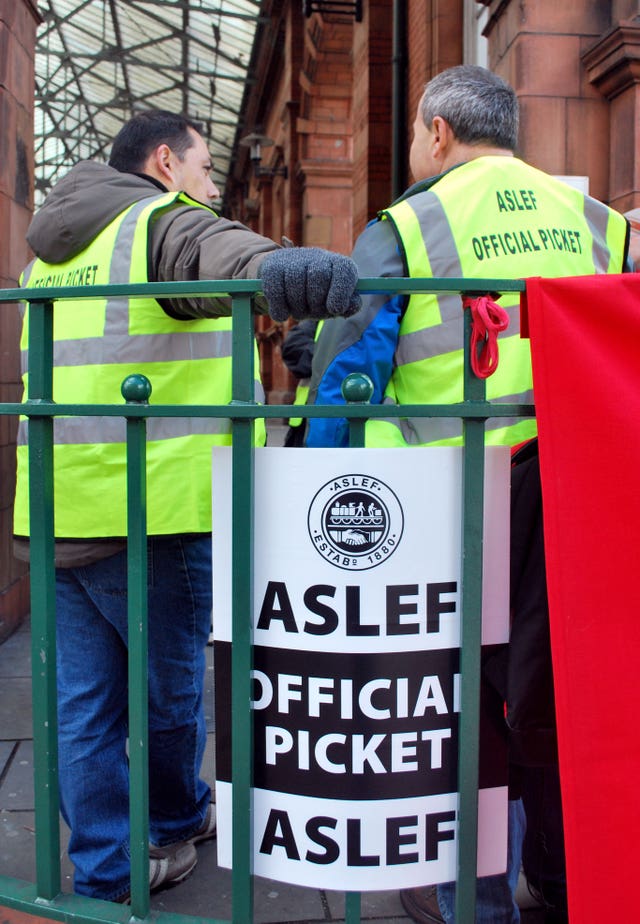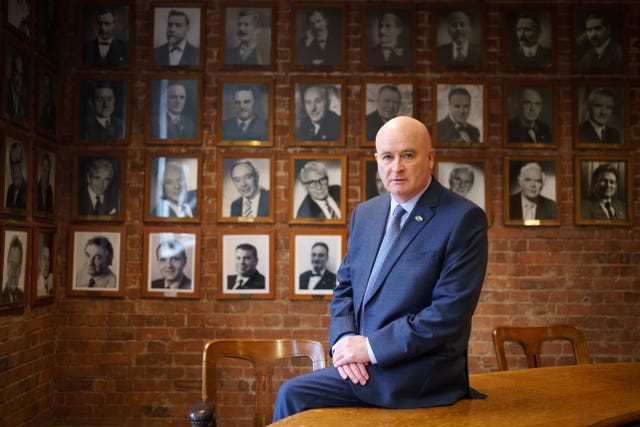
Nick Ferrari 7am - 10am
20 June 2022, 22:54

The industrial action will cause the biggest disruption to train services for decades.
Rail and Tube strikes are set to cripple services this week, causing travel chaos for passengers across the UK.
– Who is going on strike?
Members of the Rail, Maritime and Transport (RMT) union at Network Rail and 13 train operators.
– When are the strikes?
Tuesday, Thursday and Saturday.

– How bad will the disruption be?
Fewer than one in five trains will run, and only on main lines and only for around 11 hours, starting later and finishing earlier.
– Will there be strikes on the London Underground?
Yes. Members of the RMT and Unite will strike on Tuesday.
– Are other unions involved in the dispute?
Yes. The Transport Salaried Staffs Association and the drivers union Aslef are also taking industrial action or balloting for strikes.

– What are the strikes about?
The railways are proposing to make efficiency savings, especially as fewer passengers are travelling by train because of the pandemic, which has led to more people working from home.
– Why are the unions striking?
They argue that many of their members worked throughout the virus crisis and were hailed as ‘Covid heroes’ but now face job cuts, changes to their working conditions and pay rises well below the rate of inflation following years of wage freezes.
– Will there be more strikes after this week?
Yes. Members of Aslef on the Croydon Tramlink will stage a 48-hour walkout next week, and more strikes are likely if there is not a breakthrough.
– Have there been talks to try to resolve the dispute?
Yes. Talks continued until Monday, involving senior RMT and rail industry officials.
– Why hasn’t the Government been involved in the negotiations?
Transport Secretary Grant Shapps said it is up to the unions and employers to negotiate pay and conditions, but Labour and the unions believe he should be taking part in the talks.
– What are the efficiency savings the industry wants?
They largely revolve around the use of new technology, such as drones to check on railway tracks rather than having workers walk along lines.
– How many jobs are likely to be lost?
Unions believe between 2,000 and 2,500 jobs are at risk.
– Who are the union leaders?
The RMT general secretary is Mick Lynch, who has worked for the union for decades after an earlier career in the building industry. He took over from Mick Cash, who had succeeded Bob Crow after his sudden death.

The TSSA is led by Manuel Cortes, and Aslef by Mick Whelan, who are both long standing officials in the rail unions.
– Are the union leaders driving the strikes?
Thousands of RMT members voted overwhelmingly in favour of strikes, while similar outcomes are expected among TSSA and Aslef members currently being balloted.
– Has a pay offer been made and what are the unions asking for?
Mr Lynch said that an offer of a 2% pay increase had been made, with the potential to go 3% if all of the reforms are accepted.
The unions point to the 11% rate of RPI inflation, although they have not formally put a figure on their demands.